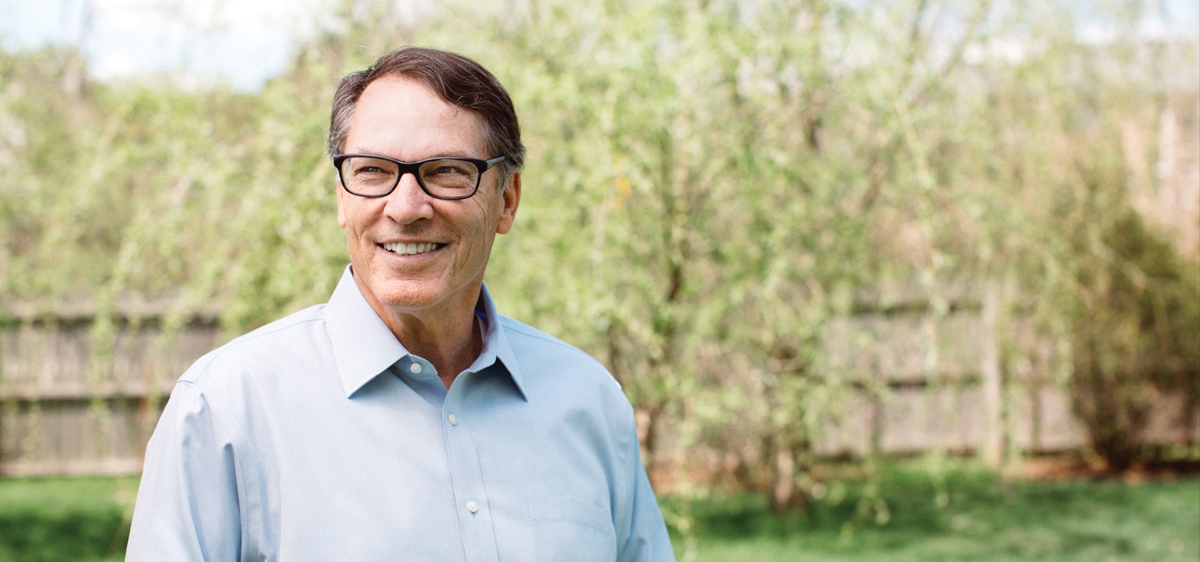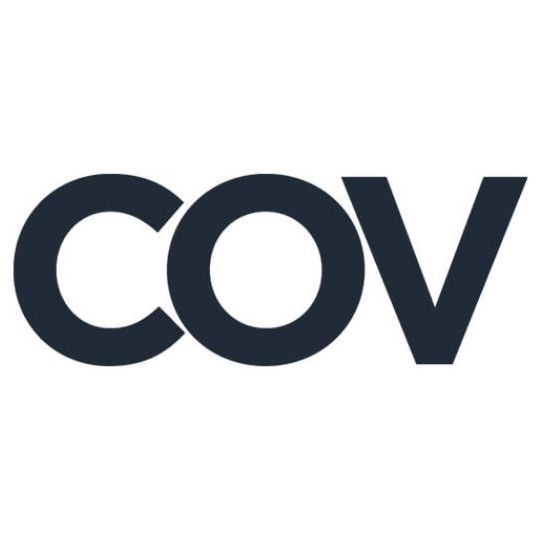Reflections on the Blessings of the Church, the Call to Mission, and Opportunities for the Future
This summer, Gary Walter will retire as the ninth president of the Evangelical Covenant Church. Recently, the Companion’s Ed Gilbreath asked him about his time in office and what he sees ahead for the denomination.
What thoughts are on your mind as you prepare to retire this summer after more than forty years in ministry?
I guess I’m a bit wistful reflecting on all the Covenant has meant to me. I came to faith in high school in no small part through a Covenant church plant in my community in Northern California—Marin Covenant Church. I met my wife, Nancy, in that church and also sensed my call to ministry there. I’ve said many times—and mean it every time—that literally everything important in my life—my faith, my family, my vocation—all traces back to how God has used the Covenant in my life.
How would you characterize the role of president?
The metaphor of “shepherd of the mission” captures the spiritual nature of our life together. Any Covenant leader needs to have a heart to nurture and deepen our spiritual identity as Christ-followers, and then we share a mission to follow God’s heart into the world. At times I may have bent more toward the mission side, but I’ve also wanted to pastor us forward.
I am grateful that the Covenant continues to be a growing, multigenerational, multiethnic mosaic. That is to the credit of our churches; pastors in all varieties of service; lay leaders; missionaries; and the many dedicated people serving our regional conferences, Covenant offices, and Covenant institutions.
The Covenant is viewed as a pacesetter in terms of the multiethnic mosaic. Why has this been so important to you?
First, it makes us more reflective of the kingdom of God, so we are better aligned with His heart and intent. Second, it positions us for the future in the U.S. and Canada, which are rapidly becoming more diverse. Third, it makes our mission stronger. A growing mosaic means that with more insights, relationship pathways, expertise, life experiences, and cultural acuity, we are simply better. I’m sure we have the most diverse senior leadership group of any denomination, and I’m even more certain that we have the most gifted.
We have a long way to go, and we’ll never arrive, but just because we don’t always get it right doesn’t mean it isn’t right.
You worked with the Covenant’s Ethnic Commission to help conceptualize the Five-Fold Test. Can you tell us about it and how it undergirds this commitment?
There are two rails that have helped advance the mosaic. One is relationality, where sincere, honest relationships and connections are essential—life together in Christ. The other is intentionality. That’s where the Five-Fold Test comes in. It recognizes that becoming more multiethnic requires a multi-dimensional approach. Internalizing it personally has been a foundational compass. The test identifies five markers that serve as values for evaluation and planning.
You have also been an advocate for women in leadership. Overall, how is the Covenant doing on this front?
Some of my wisest mentors have been women—my own pastor at Deer Grove Covenant Church is Melissa Wall. The Covenant is making progress, but the trajectory is too slow. We lose talented women who find more opportunities elsewhere. I do see encouraging signs: about one-third of our active ministerium are women, but challenges remain—particularly around lead pastor roles.
Another notable area is your commitment to our global mission, which now spans some fifty countries and includes a new region known as the Middle East and North Africa. Can you tell us about the partnership with World Vision that led to Covenant Kids Congo?
One thing we can all be proud of is that even though we are still relatively small, we don’t shy away from big challenges. When I first came into office, the Democratic Republic of Congo had recently endured years of brutal civil strife claiming some five million lives. The impact on the area where we partnered with the Covenant Church in Congo (CEUM) was heart-wrenching. On my first visit, I watched children die from malnutrition and simple childhood diseases.
I came back deeply burdened. The needs were beyond what any single capable entity like CEUM could take on, even with the dedicated partnership of the Covenant and our many Congo initiatives. World Vision was already working in other parts of Congo and had the experience and expertise to come together with us. Now, 10,000 Covenant child sponsorships later, the partnership is truly transformative. It is the largest-ever collaboration between World Vision and a denomination and the largest single project World Vision has ever undertaken.
When you came into office, you addressed some of our organizational systems. Why was that important?
At the time, our systems were strained by growth, a wandering focus, and a structure prone to silos. We underwent a deep review of our mission and the best way to organize to advance it. We dissolved our former departmental structure, let go of some initiatives, and focused our efforts around five clear priorities—Start and Strengthen Churches, Make and Deepen Disciples, Develop Leaders, Love Mercy Do Justice, and Serve Globally. It is a streamlined, cost-effective structure that naturally lends itself to collaboration. Organizational change is never easy, but I am confident about the new structure and team.
Can you talk about ways the Covenant takes on outsize challenges?
More than once I’ve been introduced outside the ECC as the president of a denomination that fights above its weight class. Whenever we take on a major emphasis, I see three things: first, it is biblically rooted—we are convinced it aligns with God’s heart and call; second, it calls out the best in us—it is aspirational discipleship, “we can do this”; and third, there is life-change that sustains momentum. When those three things are in place, Covenant people want to be on board.
You’ve been president during a particularly contentious and divisive time in our cultural context. How would you speak to the church in the midst of these challenges?
There has been much to grieve over these years—Sandy Hook, Charleston, DACA, Ferguson, refugee crises, election aftermaths, #MeToo, and more. At times we might be tempted to look first to an elephant or a donkey rather than the Lamb. Some events have been so disorienting that I’ve hoped to bring a spiritually orienting perspective, reminding us of real pain and the kingdom values—lament and hope together.
“Evangelical” is a descriptor met with cultural disdain these days. How do you think the Covenant differs from the caricature of evangelicalism as synonymous with politically conservative white fundamentalism?
I hope the word can be redeemed, though I’m not sure. Ironically, the term originated as a moderating, centrist term to escape the stigma of anti-intellectual fundamentalism. “Evangelical” literally means “characterized by the good news.” I believe our four core principles model what a centered, warm faith can be.
At the twenty-fifth anniversary of the Covenant, then-president C.V. Bowman identified four key organizing principles of our faith and practice—Biblical, Devotional, Missional, and Connectional. These values give rise to our distinct character and guide us forward. As David Nyvall said, they radiate the light of Christ’s truth, the warmth of His love, and the beauty of His character.
What challenges do you anticipate on the horizon?
At the congregational level, ministry demands are only getting steeper. It’s imperative that we continue serving all congregations—new and established. Our effectiveness depends on healthy, missional congregations and leaders.
Regarding our common life, I see three headwinds: cohesion and identity—60 percent of Covenant members today weren’t here a decade ago; living authentically into our multiethnic future—populations of color sometimes question identifying with a majority-caucasian denomination labeled “evangelical”; and navigating social issues—human sexuality, immigration, mass incarceration, refugees, and more. Regardless of the issue, we must be grounded in Scripture, exercise gracious conviction, and model Jesus’s way of grace and truth.
What are your retirement plans?
On September 1, Nancy and I will fly to the Bay Area to watch a Cal football game with my extended family. Then we’ll spend time with our children and grandchildren—from Washington State to Germany. After that, we’ll see. I have a couple of writing projects pending, and anything beyond that will be short-term or project-based.
Nancy enjoys volunteering in literacy for Spanish-speakers. I’ll explore volunteer opportunities as well—perhaps in immigration services or criminal justice. We’ll certainly remain involved in congregational life, and I hope to spend more time on recreation and fitness.
Any last thoughts?
Most importantly, I’d like to thank every Covenanter of every generation for this little corner of God’s kingdom that has meant so much to my family and me. In the early days, believers would spur one another on with two questions: “How goes your walk with the Lord?” and “Where is it written?” Let me use those themes as my benediction: may a deep love for Jesus always be our center, and may a deep obedience to the Word always be our guide. Amen.














